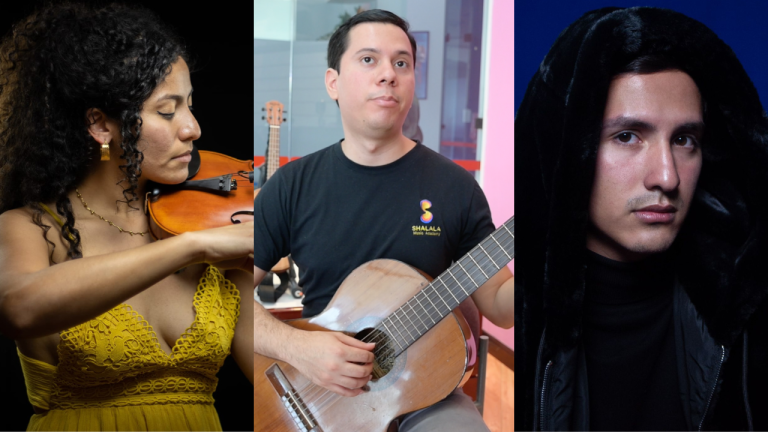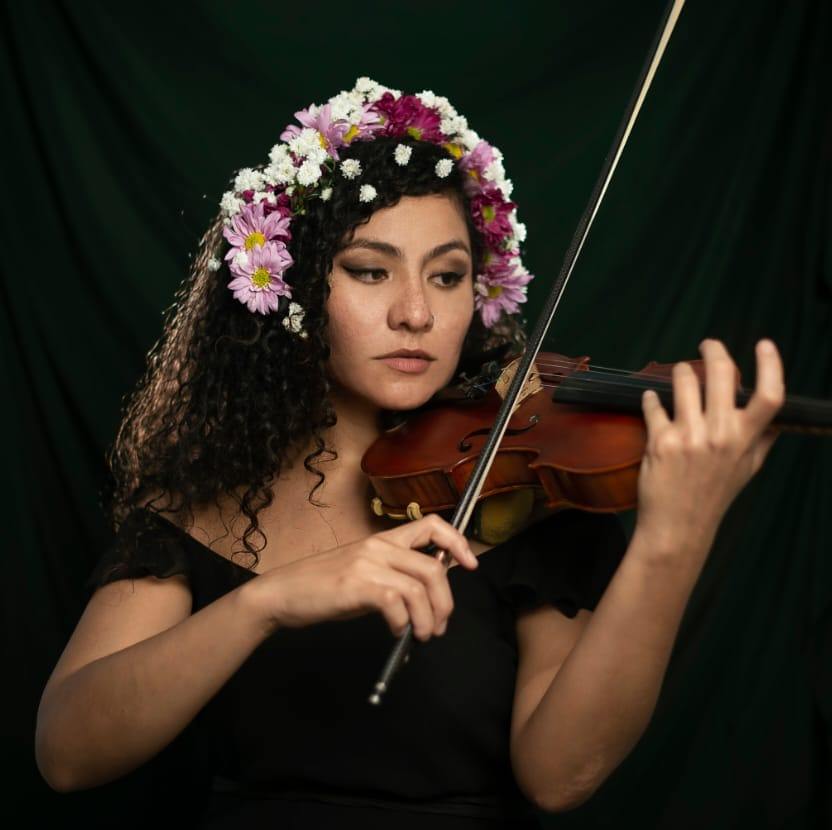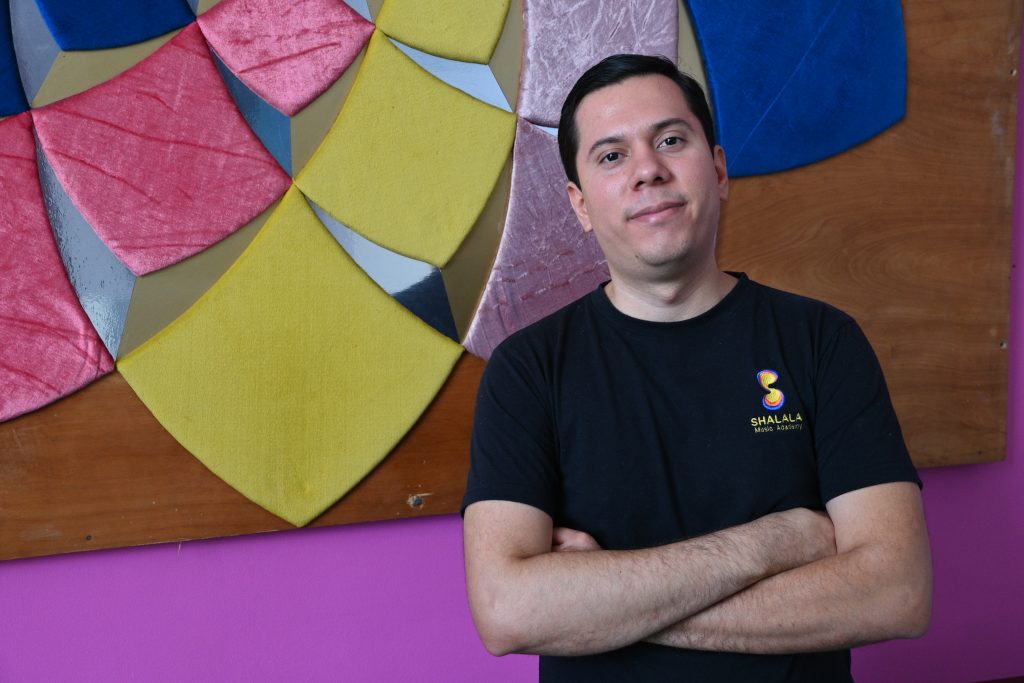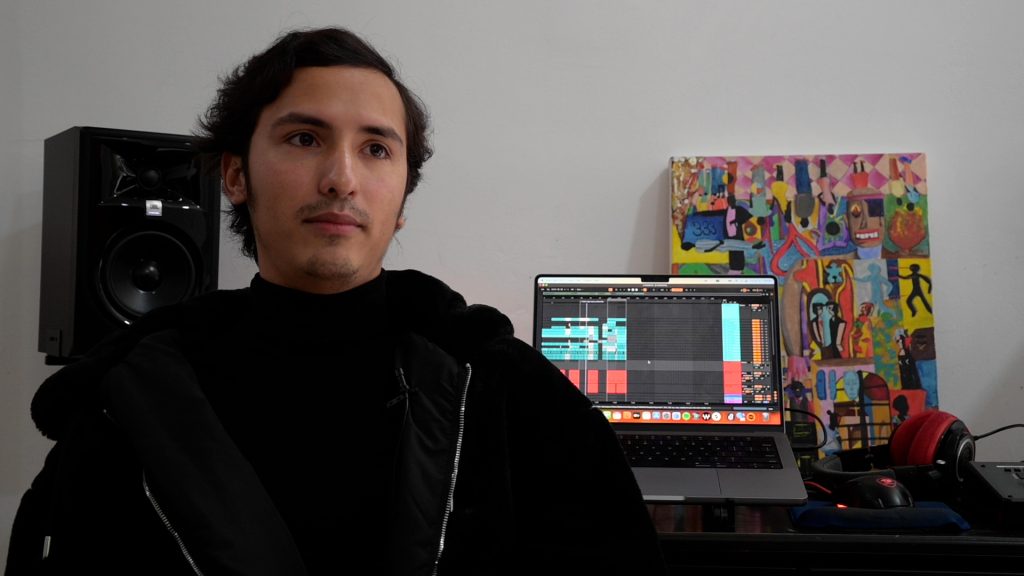28 de junio 2023

Children of Exile: The Births “Sowing Hope” in the Camp of Nicaraguan Farmers

PUBLICIDAD 1M
PUBLICIDAD 4D
PUBLICIDAD 5D
Violinist Ana Verónica Sánchez, guitarist Francisco Chavarria and producer Juan Vicente Teran emigrated to study music in Costa Rica

Ana Verónica Sánchez, Francisco Chavarría and Juan Vicente Terán are three young Nicaraguans who migrated to Costa Rica in search of opportunities to cultivate their passion for music. Today, the three are fulfilling their artistic dreams on Costa Rican soil.
Confidencial talked with them about their musical beginnings, the challenges in the new country, and their musical projects.

“I’m lucky that my family always loved culture,” proudly states Ana Veronica Sanchez, a violinist and vocalist from Masaya. Since she was a child, she and her family attended the religious festivals of her hometown and enjoyed the traditional Baile de Negras, one of the most famous pieces of Nicaraguan folklore. “I feel like that’s where my love of music came from,” she says.
At age ten, her mother enrolled her in music classes at the Batahola Norte Cultural Center in Managua. That was the first time she saw a violin. “I didn’t know what it was, or what it sounded like, but when I looked at the violin, I said ‘I want it,’ ” laughs Ana Veronica, now 30 years old.
That’s the moment she fell in love with art and music. “I was fascinated, because it was the first time I felt like both my mind and body were involved in something.”
At age fifteen, the Conservatory of Music of the then Polytechnic University of Nicaragua (UPOLI) granted her a scholarship to study to become a professional singer and violinist. After finishing high school, Ana Verónica dedicated herself to perfecting her musical skills and completing her degree in linguistics.
In 2016, at the age of 23, she was admitted to the School of Musical Arts of the University of Costa Rica (UCR). “I have several friends from the Conservatory who studied music there. They told me that I had the possibility of being admitted,” she says. “The musical environment of Costa Rica, in general, seemed much broader and very international,” she continues.
Ana Verónica has earned several achievements during her years of musical studies at the UCR. Among them are, representing the university in international music festivals, and being part of several artistic groups, including an experimental flamenco band called Merlot y Duendes, and Zéfiro, a traditional Latin American music group. She is also a violin teacher.

Francisco Chavarría grew up in a family that loved classical music; a taste inherited from his mother and maternal grandfather. From an early age, he expressed his interest in music: “There was an old guitar in my house. It didn’t even have all the strings, but I would grab it and sing Happy Birthday,” he recalls.
He received his first music lessons when he was fourteen. “I convinced my mom to buy me a guitar. I remember that it was black. That’s how I started playing my first chords in a little music school near my house.”
Months later, he began studying guitar at the UPOLI’s Conservatory of Music, and four years later, in 2011, he was admitted to the University of Costa Rica, majoring in music, with an emphasis on guitar and orchestral conducting.
“I realized that there was much more interest in classical guitar here, and also many differences on a technical level. There were many more opportunities to perform than in Nicaragua,” says Francisco.
After graduating, he worked as director of the Intermediate Guitar Orchestra of the UCR Symphony Orchestra.
In 2019, together with his wife, he founded his own music school, “Shalala Music Academy”, which offers guitar, ukulele, and voice lessons.
“Our academy is focused on popular music and in what the students enjoy, providing an experience with professional people guiding them,” he highlights.

He grew up watching videos of Michael Jackson on television. “Since I was little I knew I wanted to be a musician,” recalls Juan Vicente Terán. But it wasn’t until after high school, in 2018, that he decided to pursue his dream of producing his own music.
He moved to Costa Rica in January 2019, and in 2020, during the pandemic, he enrolled in a virtual Music Production course at DJ Lab, a school specializing in training DJs and music producers from Central America.
“Unfortunately, in Nicaragua there is no music industry, and it was impossible to start there from scratch. I had to come to Costa Rica,” explains the 22-year-old, who works as a virtual assistant in a Costa Rican company.
That same year, he produced his first electronic musical compositions, including “Guachipelín” and “Anxiety”, both available on Spotify. “I started experimenting with other genres and I also started working on singing,” says Juan Vicente, who has been taking professional voice lessons for two years.
In the coming months, Juan Vicente – known artistically as JUANVI – will make his debut as a music producer and singer. “I decided that I had to work towards my goals, and I’ve invested all of my time to move my project forward,” he says.
Ana, Francisco, and Juan Vicente have overcome many personal, economic, and cultural obstacles to succeed in Costa Rica. ” Although it is a neighboring country, culturally it is very different from Nicaragua. So, you have to adapt, as in any part of the world,” Francisco reflects.
For Ana, the hardest thing has been being away from the culture in which she grew up. “I really miss the atmosphere of Managua. I am learning a lot, but yes, there are definitely things I miss,” she says.
“It’s extremely difficult unless you are completely focused on what you want to do,” says Juan Vicente. “It’s been quite challenging to learn singing and music production from scratch,” he says.
All three aspire to continue training musically, and to promote Nicaraguan music. Ana Verónica is working on the elaboration of a historical archive of Nicaraguan music. “I’ve spent the last few years collecting and organizing compositions by Nicaraguan musicians, and I think that’s very important,” she says.
In the future, Juan Vicente hopes to introduce a modern Son Nicaragua to the Latin American music industry. “I’d love that,” he says.
This article was originally published in Spanish in Confidencial and translated by Havana Times.
PUBLICIDAD 3M
Periodista y productora audiovisual nicaragüense. Licenciada en Ciencias Políticas. Cofundadora de varias organizaciones de sociedad civil vinculadas a la lucha por los derechos de la comunidad estudiantil en Nicaragua. También se ha desempaño en proyectos de transformación digital para empresas y organizaciones.
PUBLICIDAD 3D